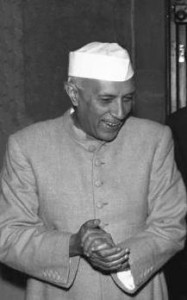

Gandhi and the leaders of the Indian National Congress Party believed Independence should be achieved under one unified India representing all religions and not one divided by religion. Independence conceded with the partition of India in which British India was divided along religious lines into the Dominions of India and Pakistan. “ Generations to come will scarce believe that such a one as this ever in flesh and blood walked upon this earth.” Albert Einstein He became revered throughout the world with the highest of honours bestowed upon him by his own people as the ‘Mahatma’, a Sanskrit word meaning ‘Great Soul’.Īlbert Einstein never met Mahatma Gandhi but through their correspondences, and Gandhi’s character and influence on India and the world, he held him in high regard: Pandit Jawaharlal Nehru, the first Prime Minister of India, shares a laugh with the beloved Mahatma Gandhi Image source: Gandhi Memorial Centre Martin Luther King and the civil rights movements around the world.

His non-violent resistance campaigns ultimately inspired civil rights leaders including the late Dr. Instead he wore the dhoti and shawl, spun from Indian cotton, as part of his spiritual and political philosophy and in representing the people, in particular, the poorest of the poor.

Gandhi stopped wearing the tailored suits, shirt and pants he previously wore as a young lawyer in bid to boycott textiles from England and he encouraged his supporters to do the same. One of his most famous campaigns was the ‘Salt March’ from Ahmedabad to the Indian Ocean at Dandi from 12 March to 6 April, 1930. Gandhi became the President in 1924 of the Congress Party and became a major force in its drive for independence. He later returned to India and led successful ’civil disobedience’ and ‘non-violent resistance’ campaigns against the British. He faced discrimination in South Africa and fought for equality. Mohandas Karamchand Gandhi studied Law in London and became an accomplished lawyer in South Africa where he lived and worked for some time. The movement was also represented by a young Indian man from Gujarat. It was the unbelievable courage of the resistance fighters that led the Independence movement which included leaders from the Indian National Congress Party and their supporters. The nation adopted the Constitution of India, on 26 January 1950, which is celebrated as ‘India Republic Day’.ĭuring the struggle for Independence, there were many incidents of cruelty and brutality.
#Nehru speech at the stroke of midnight full
The British Raj, the period of direct British rule over the Indian subcontinent, was from 1858 until the independence of India and Pakistan in 1947.Įven after India achieved the full transfer of power on 15 August 1947, the country still retained King George V1 as its Head of State until its transition to a full republic. It all started when the British landed in India in Surat on August 24,1608. Indian Independence Day is celebrated on 15 August 1947 each year commemorating the nation’s Independence. It is fitting that at this solemn moment, we take the pledge of dedication to the service of India and her people and to the still larger cause of humanity….” A moment comes, which comes but rarely in history when we step out from the old to the new when an age ends, and when the soul of a nation, long suppressed, finds utterance.

At the stroke of the midnight hour, when the world sleeps, India will awake to life and freedom. “Long years ago we made a tryst with destiny, and now the time comes when we shall redeem our pledge, not wholly or in full measure, but very substantially. Pandit Jawaharlal Nehru, was India’s great statesman and the first Prime Minister.ĭuring his famous ‘Tryst with Destiny’ speech, close to the midnight hour of 14 August 1947, he most famously said.


 0 kommentar(er)
0 kommentar(er)
